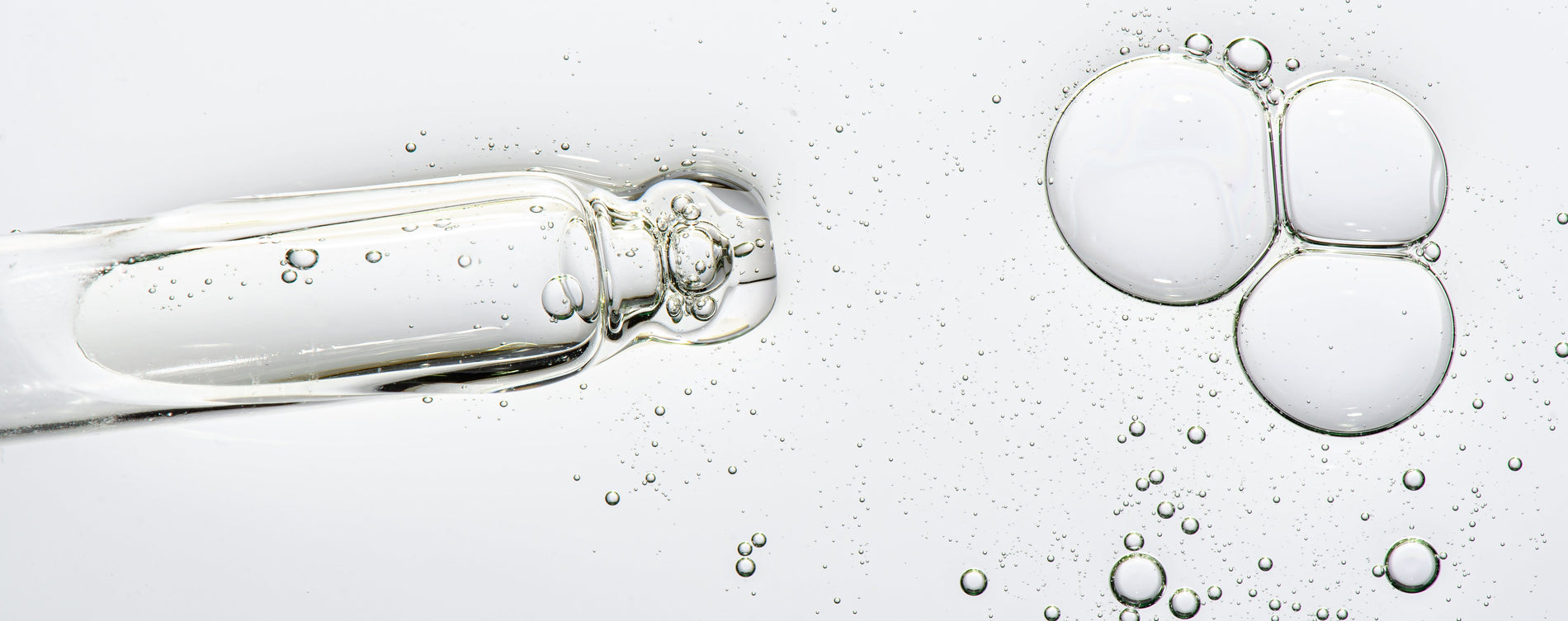Our thirst for knowledge when it comes to understanding what’s in our skincare is one of our superpowers as a consumer. It helps us make informed and cost-effective decisions with our purchases and even drives innovation from brands. It’s probably what led you here, to find out what exactly peptides are, and we’re happy to oblige.
What are Peptides?
Ok, this is the sciencey bit, so bear with us. Peptides are short strings of 2-50 amino acids joined together by peptide bonds. Over 50 amino acids and the chain becomes a polypeptide, and one or more polypeptides is a protein. So in short, peptides are building blocks for proteins. They can signal to cells to stimulate the production of the proteins our skin needs to look and feel its best.
“In our bodies, peptides act as messengers between cells telling them when to activate, when to go dormant, when they need to go into repair mode, etc. Peptides amplify the messenger-type service in your skin, targeting the appearance of different skin concerns depending on what peptide you use.” - Tania Exell, AlumierMD
According to Alastin Clinical Trainer Hannah Finan: “As people age, their levels of naturally occurring peptides tend to decline. They can also stop working as effectively due to external factors such as free radical damage, pollution, and sun damage, which may result in accelerated ageing and photo ageing.” We can’t stop the clock – or hide inside – so factoring peptides into our skincare is a great way to combat the decline and slow the ageing process.
What are the benefits of Peptides?
Ok, so we know peptides slow the ageing process. They do this by stimulating the production of proteins like collagen and elastin, leading to a reduction in fine lines and wrinkles and a boost to overall skin health. But according to Finan, they can also reduce inflammation and support healing, making them great for before and after clinical skin treatments, redness, or skin condition flare-ups. The hardworking little amino acid squads have been shown to improve the skin barrier too.
“At Alumier MD, we use multiple peptides within our strategic formulas to create hardworking hybrid products. In fact, we’re a world authority on peptides, as the founder of cosmetic peptides - Dr Karl Lintner - is the director of Alumier MD’s Scientific Committee.” - Tania Exell, AlumierMD
Collagen peptides are some of the most popular and provide a great example of why peptides are so efficient in topical skincare. Where collagen molecules are too large to absorb through the skin, peptides are small enough that with the right formulation, they can penetrate through the outer layer of the skin, deep enough to signal to your cells to produce more collagen. Genius.
Another win? Because peptides are naturally occurring, Finan says that as long as they’re well-researched and high-quality, it’s unlikely that your skin will have an adverse reaction. They’re also suitable to use in combination with your other actives like antioxidants, retinol, or hyaluronic acid.
How to use Peptides
Serums have thinner formulas making them great for deep absorption, giving active ingredients high impact. Moisturisers, on the other hand, are typically nourishing at the surface of the skin for moisture and hydration. Peptides are a great inclusion at both points in your routine.
Though many products will include peptides in the product name or description, you can also check the ingredient list for hexapeptides, n-acetylcarnosine, palmitoyl tripeptides, and tetrapeptides.
Our Top Peptide Product Picks
Best for Stimulating Hyaluronic Acid Production








For personalised advice on how to incorporate peptides into your skincare routine, speak to an expert.







